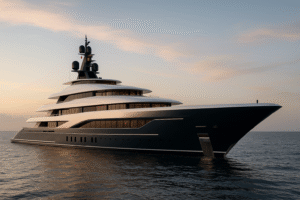The luxury hotel market is on the cusp of a transformative phase, poised to significantly influence global tourism by 2031. As the industry evolves, several key trends are emerging that will redefine the travel experience for affluent consumers.
Market Growth and Economic Impact
The global luxury hotel market is projected to surge from approximately $95.11 billion in 2020 to an estimated $160.48 billion by 2031, reflecting a compound annual growth rate (CAGR) of around 5.1%. This growth is largely attributed to rising disposable incomes, an increase in leisure travel, and a shift in consumer preferences towards unique and immersive experiences rather than mere opulence.
Changing Consumer Preferences
Today’s luxury travelers are increasingly seeking personalized and culturally enriching experiences. They prioritize authenticity over traditional luxury amenities, which has prompted hotels to adapt their offerings accordingly. This shift is evident as hotels focus on curating bespoke experiences that resonate with guests’ desires for exclusivity and cultural immersion.
Key Trends Shaping Luxury Hotels
- Sustainability: Eco-friendly practices are becoming essential, with travelers favoring hotels that demonstrate a commitment to sustainability. This includes energy-efficient designs, waste reduction initiatives, and sourcing local ingredients for dining options.
- Wellness: The integration of wellness into the hospitality experience is gaining traction. Luxury hotels are now offering comprehensive wellness programs that include spa treatments, fitness facilities, and mindfulness activities, catering to health-conscious travelers.
- Technology Integration: Advanced technologies are enhancing guest experiences through seamless service delivery. Features like contactless check-in, smart room controls, and personalized digital concierge services are becoming standard in luxury accommodations.
Regional Insights
North America remains the leading market for luxury hotels, driven by high domestic and international tourism activity. Meanwhile, Europe is witnessing rapid growth in the resort segment as travelers seek exclusive getaway experiences. Emerging markets in Asia, particularly China and India, are also seeing significant investments in luxury hotel developments due to increasing demand from affluent consumers.
The Future of Luxury Hospitality
As we look toward 2031, the luxury hotel market will continue to evolve in response to changing traveler expectations. The focus will be on creating holistic travel experiences that extend beyond traditional hospitality offerings. Hotels will need to differentiate themselves through innovative services that prioritize guest satisfaction and sustainability.
In conclusion, the transformation of the luxury hotel market is set to redefine global tourism by 2031. With a strong emphasis on personalized experiences, sustainability, and technological advancements, luxury hotels will play a pivotal role in shaping how affluent travelers explore the world. This evolution not only caters to the sophisticated demands of modern consumers but also contributes significantly to the broader travel industry landscape.





